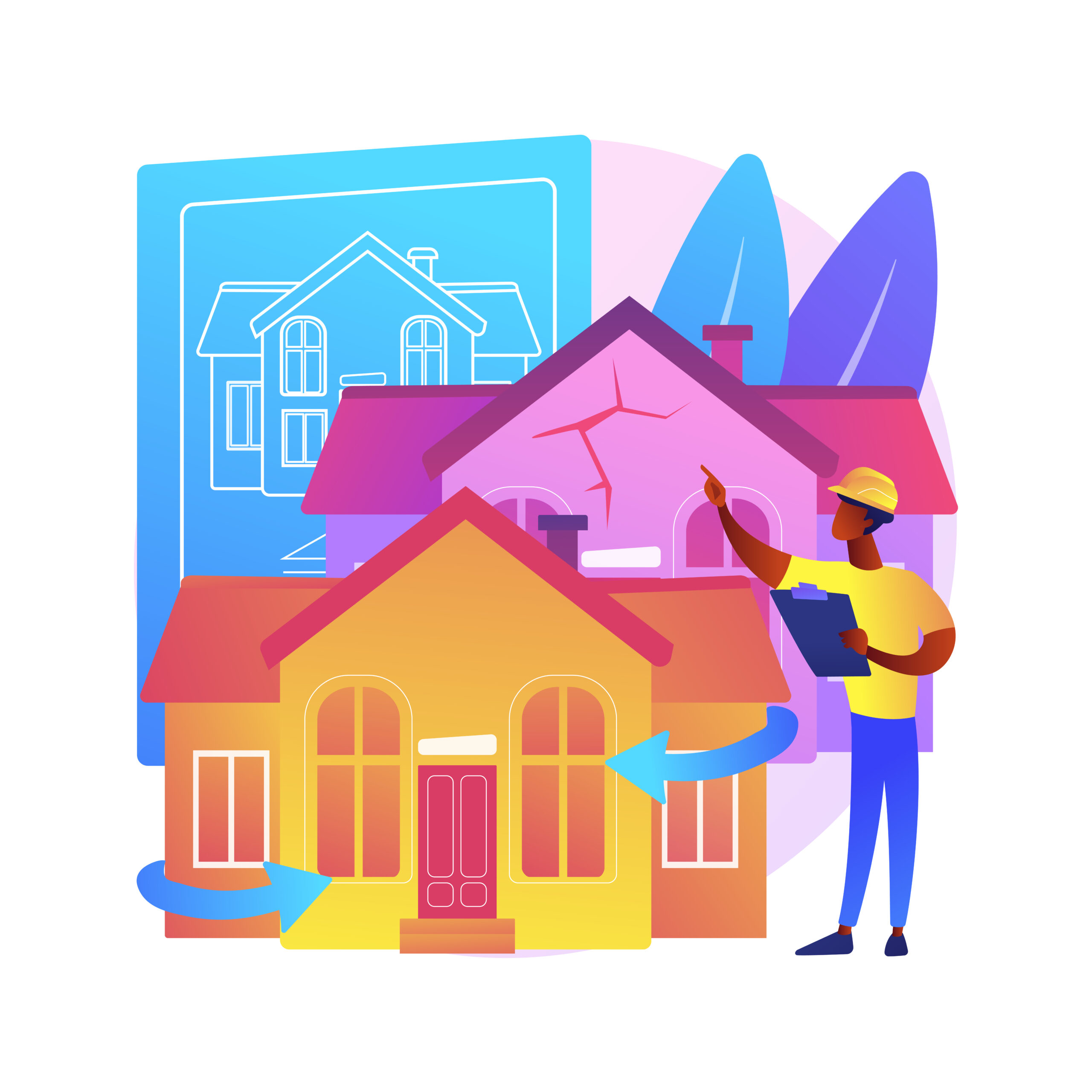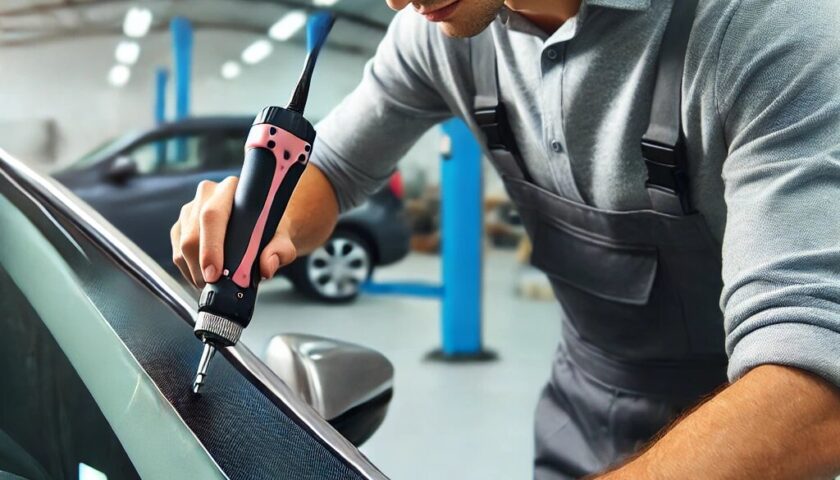Hey there! If you’re in the market to buy a new home, one of the most important things you can do is get a professional home inspection. I know home inspections can feel like just another box to check off on the long to-do list of purchasing a home. But a home inspection provides extremely valuable information that can save you thousands of dollars and major headaches down the road.
In this post, I’ll go over some of the top benefits of booking a professional home inspection service. when buying a new house. I’ve been involved in the real estate industry for over 15 years, and I can’t stress enough how vital home inspections are, especially for first-time homebuyers. A thorough home inspection from a qualified professional inspector can give you peace of mind and allow you to make the best decision for you and your family.
Identifying Major Issues with the Home
One of the biggest benefits of a professional home inspection services is identifying any major underlying issues with the home early on. While cosmetic fixes like dated appliances or worn carpets are easy to spot, serious structural problems or faulty systems can be extremely difficult to identify yourself as an untrained homebuyer.
A qualified home inspector has the keen eye, experience, and testing equipment to discover issues like:
- Structural/Foundation Damage: Cracks in foundations or settling that might indicate a shifting foundation.
- Roofing Problems: An older roof at the end of its lifespan, or damage like cracked tiles.
- Electrical Issues: Improper wiring, code violations, loose connections, insufficient amperage.
- HVAC Problems: An outdated or improperly installed furnace, AC issues, bad ductwork.
- Plumbing Leaks: Clogged drains, leaky pipes, rust spots from bad water damage.
- Pest/Termite Infestation: Rotten wood, termite damage, ants or other pests.
- Mold: Excess moisture facilitating mold growth.
- Faulty Additions: Bad DIY renovations or unpermitted additions.
Finding these types of significant issues early allows you to make an informed decision on the home’s true value and potentially negotiate with the seller on the price or repairs.
Providing an Objective Assessment
As a homebuyer, it’s nearly impossible to remain completely objective about a home you’ve fallen in love with. A professional home inspector provides an unbiased, expert assessment of the property.
Some things that excite you about a home, like a newly renovated bathroom, may actually have been done improperly and have underlying flaws. Or you may overlook things like an ancient electrical panel or insufficient insulation because your untrained eye doesn’t know what to look for.
A home inspection gives you a thorough evaluation of all of the home’s major systems and components, along with an inspector’s honest thoughts on any issues that may need to be addressed. Having this objective perspective ensures you have a complete and accurate understanding of the home before purchasing.
Identifying Small Issues Before They Become Big Ones
In addition to identifying any glaring issues with the property, a home inspection can also uncover smaller problems that have the potential to become much larger, more expensive issues down the road.
For example, a home inspector will look closely for:
- Small leaks and insufficient caulking/weather stripping that can lead to water damage.
- Rodent or pest entry points.
- Signs of rust and wear on appliances that may need replacing soon.
- Doors/windows that don’t operate smoothly and could get worse over time.
Catching these minor defects early allows you to proactively address them before they spiral into emergencies requiring costly repairs.
Providing Peace of Mind
Ultimately, a professional home inspection gives you peace of mind about one of the largest purchases of your life. Buying a home is not only a huge financial commitment, but also an emotional one.
Knowing that a trained expert has thoroughly evaluated the property allows you to proceed confidently with the purchase, satisfied that you understand the full scope of the home’s condition.
Rather than constantly worrying about unwelcome surprises down the road, you can rest assured that any issues with the home have been identified upfront. This takes much of the stress and uncertainty out of homebuying.
Helping Inform Your Negotiating Position
Armed with the home inspection results, you can enter purchase negotiations with confidence regarding a fair price that reflects the true condition of the property.
If issues are found that need to be addressed, you can determine reasonable repair estimates and negotiate the purchase price accordingly. Or perhaps the sellers will agree to handle certain repairs themselves.
Either way, the inspector’s report allows you to negotiate from an informed position, knowing the home’s deficiencies and ideal sale price. This prevents you from overpaying for a property that needs expensive system upgrades or repairs.
Providing Insight on Priorities for Remodeling or Upgrades
Along with pointing out any pressing repairs needed, a home inspection can also help you formulate priorities for future remodeling projects or upgrades.
Maybe you’d like to renovate the kitchen, but the inspector notes that the home’s roof and windows are aging and will need replacement sooner than the kitchen. This insight can help you budget and schedule projects in the proper order of importance.
Or if you’re on the fence about adding a pool, the inspector might discover drainage issues that make a pool unwise until grading problems are corrected.
This information empowers you to tailor your remodeling plans based on the home’s specific needs.
Identifying Inadequate Work by Flippers or Renovators
With shows like Flip This House popularizing quick home flips, more and more purchasers face the possibility of buying a property that was cosmetically flipped with shoddy workmanship and hidden issues.
An experienced home inspector can identify warning signs of flipping like:
- Cheap finishing materials or flooring used to make things look nice superficially.
- Fresh paint that covers cracked walls or patched drywall seams.
- New budget appliances installed over old neglected wiring or plumbing.
- DIY repairs done incorrectly by an inexperienced flipper.
A home inspection provides assurance that any recent renovations were done properly and not just slapped together to appear updated. This protects you from purchasing a problematic property disguised by new finishes and features.
Verifying Major Systems Function Properly
Of course, a major aspect of any home inspection involves checking that appliances, HVAC systems, plumbing, electricity and other major systems are in working order. The inspector will:
- Turn on all faucets, flush toilets, run showers to check water flow and drainage.
- Test garbage disposals, ceiling fans, doorbells, and outlets.
- Inspect furnace, AC unit, and ductwork.
- Verify smoke detectors and carbon monoxide monitors are present.
- Examine the water heater, electrical panel, and other mechanicals.
While owners and real estate agents will assure you these items work, it’s impossible to know for certain without an objective inspection testing all components. Thoroughly verifying proper functioning provides security that you won’t have to replace expensive equipment immediately after moving in.
Checking for Code Violations
Inspectors also look for any violations of local building codes and safety standards. This might include things like:
- Improper or outdated electrical wiring.
- Lack of GFCI outlets near water sources.
- Insufficient railings for stairs or decks.
- Bedrooms and finished basements without proper emergency egress.
While code violations don’t necessarily make a home unsafe, they could require upgrades at your expense after purchasing the property. And safety issues like lack of smoke detectors need to be addressed ASAP.
A home inspection makes you aware of any violations so you can factor potential costs into negotiations and get quotes on required upgrades.
Providing an Educational Opportunity
Having an experienced home inspector walk through your prospective new home offers a valuable educational opportunity, especially for first-time homebuyers.
A good inspector will explain systems, materials, and issues in everyday language while pointing out specifics of the property. As they work, you’ll learn about things like electrical panels, HVAC equipment, plumbing, structure, and more.
This crash course helps any new homeowner better understand how their home functions. And it equips you with basic knowledge for handling small repairs and maintenance down the road.
Catching Items the Seller Must Disclose
In most states, sellers are legally required to disclose any known defects or issues with the property. This is done through a property disclosure form completed by the seller.
However, sellers may conveniently leave off or fail to mention some faults or troublesome items they don’t want to deal with. A home inspection serves as an impartial verification of the disclosure form, making sure any seller omissions are caught.
For example, an owner might not fess up to a leaky roof, damaged foundation, pest problem, or other flaw unless a home inspector discovers and documents the issue.
Providing Written Documentation
Unlike your own informal walkthroughs of the property, a professional inspection provides thorough written documentation of the home’s condition.
The inspection company will compile a detailed report listing any issues discovered, complete with photos, explanations, and repair recommendations.
This documentation becomes part of the transaction that both you and the seller acknowledge. It ensures any existing problems with the home or necessary repairs are recorded in writing rather than just based on verbal assertions.
One Less Contingency to Worry About
Many real estate purchase contracts include contingencies that must be met for the sale to move forward. Common contingencies include:
- Home inspection contingency
- Appraisal contingency
- Financing contingency
- Title contingency
Having all your contingencies in order can be stressful. But a timely, satisfactory home inspection is one less contingency you need to worry about derailing the deal.
Giving Leverage to Negotiate Repairs
Perhaps the inspection reveals issues you want the seller to address before purchasing the home. Mold in the basement. Knob and tube wiring. Evidence of a prior termite infestation.
Documenting these flaws through a home inspection report gives you firm ground to request the seller make necessary repairs before closing.
Most sellers are willing to perform reasonable fixes or price reductions when presented with an objective inspector’s report. Know your negotiation rights based on the home’s verified condition.
Providing Documents for Insurance
After purchasing the home, you may need to submit copies of the inspection report when purchasing homeowners insurance or requesting coverage for specific issues. Documented proof of any past or present problems can smooth the insurance application and claims processes.
Well Worth the Cost
The cost of a professional home inspection ranges from $300-$500 on average based on the home’s size and location. For such a small percentage of the total purchase price, inspection fees deliver immense value and peace of mind.
Considering the thousands of dollars an inspection could save by avoiding expensive hidden issues, the cost is very worthwhile. Inspections also lower odds of expensive disputes and legal wrangling over unidentified property defects.
By providing vital insight on the home’s condition and needed repairs, a home inspection often pays for itself many times over down the road. Don’t skip this critical step in the home buying process!
When to Get a Home Inspection
Ideally, you should complete the home inspection before finalizing a home purchase contract. This allows you to make the inspection results and needed repairs part of the purchase terms you and the seller agree to.
Inspections are generally done once you’ve decided on a home and your offer has been accepted. They’re often part of routine contingencies worked into real estate contracts.
It also works well to get an inspection completed shortly after the home appraisal. This condenses your major to-dos into one general timeframe for less hassle.
Choosing the Right Home Inspector
Not all home inspection companies and professionals offer the same level of experience and detail. Here are some tips for choosing reputable home inspectors:
- Look for licenses: In most states, home inspectors must hold a current license demonstrating proper training and expertise. Verify licenses are up to date.
- Check for certifications: Respected associations like the American Society of Home Inspectors (ASHI) require inspectors to pass rigorous exams to earn certifications based on experience. Seek ASHI-certified professionals.
- Read reviews: Check online reviews and ask real estate agents for recommendations. Look for consistent feedback praising an inspector’s thoroughness.
- Call a few: Talk briefly to inspectors before hiring. Do they sound knowledgeable? Are they willing to answer all your questions? Go with someone who instills confidence.
- Compare services: Inspection companies offer different tiers of service at different price points. Understand exactly what’s included to get your money’s worth.
Be Present for the Inspection
While not required, I always advise buyers to be present for their home inspection when possible. This allows you to:
- Hear the inspector’s comments first-hand.
- Ask the inspector questions directly as they work.
- Collaborate on priorities for repairs or upgrades.
- Get a detailed education on the home’s components.
Tagging along during the inspection makes it a more interactive, educational experience so you get maximum value.
Read the Full Report Thoroughly
When you receive the full written inspection report afterward, resist just flipping to the summary. Take time to read the complete document closely.
Often the most useful tidbits are buried in the details, not just highlighted in the conclusions. Comprehensively reading the report allows you to absorb all the inspector’s findings.
If anything is unclear or concerning, follow up with the inspector for clarification. Use the report as your guidebook for the property moving forward.
Don’t Neglect Inspections on New Construction
It’s just as important to get a home inspection when purchasing new construction as existing homes! Just because a home is newly built doesn’t mean it’s immune from defects.
In fact, brand new homes often have issues like:
- Improper drainage away from foundation.
- Insufficient insulation or fire stopping.
- Shoddy roofing materials or techniques.
- Defective HVAC, appliances or wiring.
- Plumbing leaks missed after walls were closed up.
- Basement or crawlspace moisture problems.
- Loose railings, uneven surfaces, or cracking walls/ceilings.
An inspection on new construction ensures quality standards were properly met and the home has no underlying flaws. Don’t assume everything was done correctly just because the home is newly built.
Consider Specialized Inspections as Needed
On top of a general whole-home inspection, certain homes may also warrant specialized inspections using hi-tech equipment and expert testing. For example:
Termite inspection – If the home is located in an area prone to termites or shows signs of past infestation, a proper termite inspection using smell testing and other methods is wise.
Well/septic inspection – For rural properties using well water and septic systems, inspections check that water flow and filtration are adequate while identifying septic issues.
Chimney inspection – Chimney inspections use video cameras and other tools to examine interior flues and identify any damage, blockages, or ventilation issues.
Mold inspection – If the home inspection reveals possible mold, an air quality test by mold professionals may be needed to identify the type and extent of contamination.
Your home inspector can advise if any of these specialized secondary inspections might be recommended.
In Summary
Having a professional home inspection before finalizing the purchase of your new home is one of the smartest investments you can make as part of the homebuying process. For a small expenditure, you gain immense peace of mind and protection against expensive hidden problems with the property.
I hope this overview has shown the significant benefits a home inspection provides. Never skip this important step when purchasing a new home! Let me know if you have any other home buying questions I can help with.





